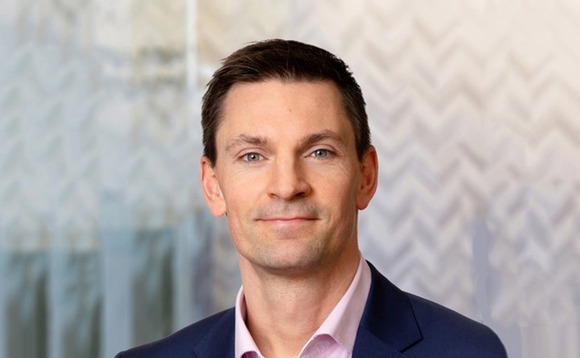
GP Profile: Baird Capital puts lower-middle-market niche and global expansion offering to work

Baird Capital, an affiliate private equity arm of US-headquartered investment bank RW Baird, is seeing its lower-middle-market flexible investment strategy and its global growth capabilities resonating well with founder-owned businesses in the current market, Partner Michael Holgate told this news service.
"A theme I've been observing in the market for the last few years is the requirement to be focused in terms of the end markets you invest in, as the generalist model of private equity investing is becoming increasingly harder," he said.
The firm provides growth equity for businesses in sectors that present global opportunities for small and medium-sized businesses, such as financial services and fintech, as well as pharma services.
The GP, which is currently deploying capital out of its second fund, has a good pipeline of new deal opportunities, said Holgate. It plans to pursue its current private equity strategy, targeting founder-owned businesses in the lower-middle market headquartered in the UK, the US and Asia.
Baird Capital Global Fund II is comprised of eight portfolio companies so far, following recent investments in Freemarket, a London-headquartered fintech platform, and data consultancy JMAN Group in May. The fund held a final close with capital commitments exceeding USD 340m in July 2021, according to Unquote Data.
"Valuations are lower as a general rule, and while we're seeing a slowdown in change-of-control buyout deals that are debt-reliant, our ability to take a flexible approach to structuring our deals, − not being over-reliant on leverage and being growth-focused − has played really well in the market we sit in today," he said.
The GP typically acquires 20% equity stakes on the low end and 80% on the high end of its deals, writing USD 15m-USD 50m equity cheques respectively, but is significantly diversifying its offering with its global resources via Baird. The firm can occasionally access additional capital co-investing alongside its LPs, he added, noting that it has deployed USD 20m-USD 40m for most of its portfolio, acting as the institutional investor supporting these companies.
Global ambitions
With a track record of global expansion stories within its financial services portfolio, the sector will remain on the GP's radar, leveraging its presence and resources in both the UK and the US, two major players in the market, he added.
"Management teams of technology and services businesses that have an ambitious growth plan that involves international expansion, typically seeking to grow in the US, see a very good partner in us," he said.
That was the case in its minority investment in JMAN Group, where the firm's US resources fit well with the company's ambition to continue to expand its solutions for clients, as well as to grow internationally, with a specific focus on North America.
A similar set of dynamics is at play in pharma services, a resilient segment within a large fragmented market with exit opportunities, according to the partner.
"There is a desire in those markets to outsource services, which creates great opportunities for specialist independent players to grow faster than the underlying market," he said.
Baird Capital currently has four pharma service companies in its portfolio, including UK-based Prescient and Blue Matter, which has a Likely to Exit (LTE)* score of 53, according to Mergermarket's predictive algorithm.
The compliance and security market also fits into the GP's investment criteria, benefiting from strong macro trends and legislation. Sustainability and circular economy are recurring themes in its deployment strategy from an industrial services and technology perspective, he said.
Value creation
The firm tends to target a liquidity event in the typical three- to five-year fund exit period but remains flexible, said Holgate.
"The M&A market is tougher but we are being very thoughtful with each of our portfolio companies and have a very clear value creation plan agreed with management around potential buyers and exit time," he said, without disclosing more information about the GP's exit pipeline.
Baird Capital's more recent exit was the UK financial services firm bfinance in February 2023, as reported, which was bought by US-based private equity firm Beach Point Capital Management.
Private equity is increasingly emerging as a buyer for the GP's portfolio, said Holgate, noting that 15 years ago the majority of its exits would be to trade buyers.
"We're now seeing a very well-trodden path where, although we are the first institutional provider of capital, private equity houses continue to be a source of liquidity for our high-growth businesses," he added.
In spite of the tougher exit environment, Baird Capital's LPs remain happy with the performance of private equity or alternative investments as an asset class outperforming public indexes, he said.
Baird Capital has USD 1.4bn in assets under management, currently holding 48 companies in its portfolio, with six in the UK. Its 41-member team has nine individuals based in London, bolstered by an additional three local operating advisors. The firm announced the opening of a new office in Singapore in August 2022, completing its migration from Shanghai.
*Mergermarket's LTE predictive analytics assign a score to sponsor-backed companies to help track and predict when an exit could occur through M&A, an IPO, a direct listing or a deSPAC transaction.
Latest News
Stonehage Fleming raises USD 130m for largest fund to date, eyes 2024 programme
Sponsor acquired the public software group in July 2017 via the same-year vintage Partners Group Global Value 2017
Stonehage Fleming raises USD 130m for largest fund to date, eyes 2024 programme
Czech Republic-headquartered family office is targeting DACH and CEE region deals
Stonehage Fleming raises USD 130m for largest fund to date, eyes 2024 programme
Ex-Rocket Internet leader Bettina Curtze joins Swiss VC firm as partner and CFO
Stonehage Fleming raises USD 130m for largest fund to date, eyes 2024 programme
Estonia-registered VC could bolster LP base with fresh capital from funds-of-funds or pension funds








